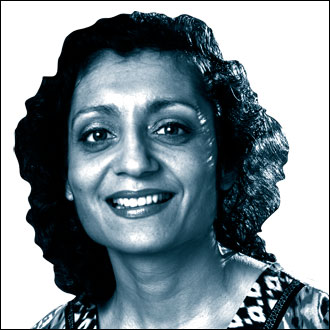Are we really ‘resilient’, or are we just overexploited?

The term ‘resilience’ has become the new buzzword thrown at GPs. The GMC has decided it should be enshrined into medical school training, hoping to prevent the scandalous rates of suicide among doctors under investigation. Over an eight-year period, 114 doctors under investigation have died and 28 of these have been confirmed as suicide. The GMC has been urged to change the mentality of ‘guilty until proven innocent’, but all this talk of resilience puts the blame on the GP for not being tough enough.
And I am still uncertain if resilience is something we should aspire to. My own interest stems from the fact that my father died unexpectedly when I was 16. The following day, I travelled alone to school, was given a cup of tea in the head teacher’s office, told to take the rest of the week off and to return after that. There was no mention of support or counselling. I kept my head down, studied hard and started medical school. Once there, I was distracted by my independence, the workload and partying. I thought I was strong. It wasn’t until three years later that it came crashing down. I was depressed (but didn’t seek help), left medical school (only to return a week later) and felt infantile. I had buried my grief, distracted myself, and the world saw someone who had ‘bounced back’; the hallmark of resilience.
Fast-forward four years and I was a junior house officer working more than 100 hours a week. In 1992, this was the norm. I was part of a collective resilience, akin to being in a war zone. We worked together, ate together, played together and slept together. We became agoraphobic when we left the battlefield and had occasional PTSD symptoms, but didn’t yet recognise them. Our only motivation was survival. We would not waste energy trying to improve conditions, as reflected by the European Working Time Directive legislating when the BMA could not.
Those of us who survived were now feeling pretty superior. We felt younger doctors lacked the resilience and professionalism of the past. But what did this resilience achieve? As trainees, we continued working overtime at nights and weekends for HALF our normal pay; being paid less per hour than the cleaner. We abused alcohol because that’s easy when you are sleep deprived. Our relationships were intense, but transient as we laid our hat in a new home every six months. And most disturbingly, we developed a black humour and armour that was impenetrable to compassion towards our patients or each other.
This is far from a successful story of resilience. It is a story of damage and exploitation. Our ‘professionalism’ has led to 12-hour working days combined with a loss of income. It is now preparing to work a 12/7 week. But true resilience would mean valuing ourselves, putting us, our families and friends first. It is no surprise that newly qualified GPs are rejecting salaried and partnership roles in favour of locum posts and working abroad.
We could learn a lot from them.
Dr Shaba Nabi is a GP trainer in Bristol









